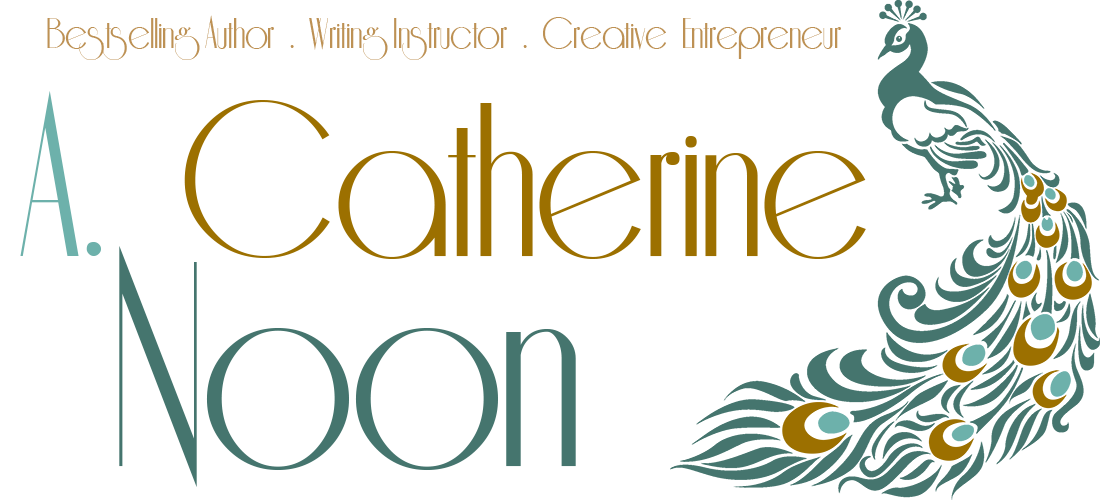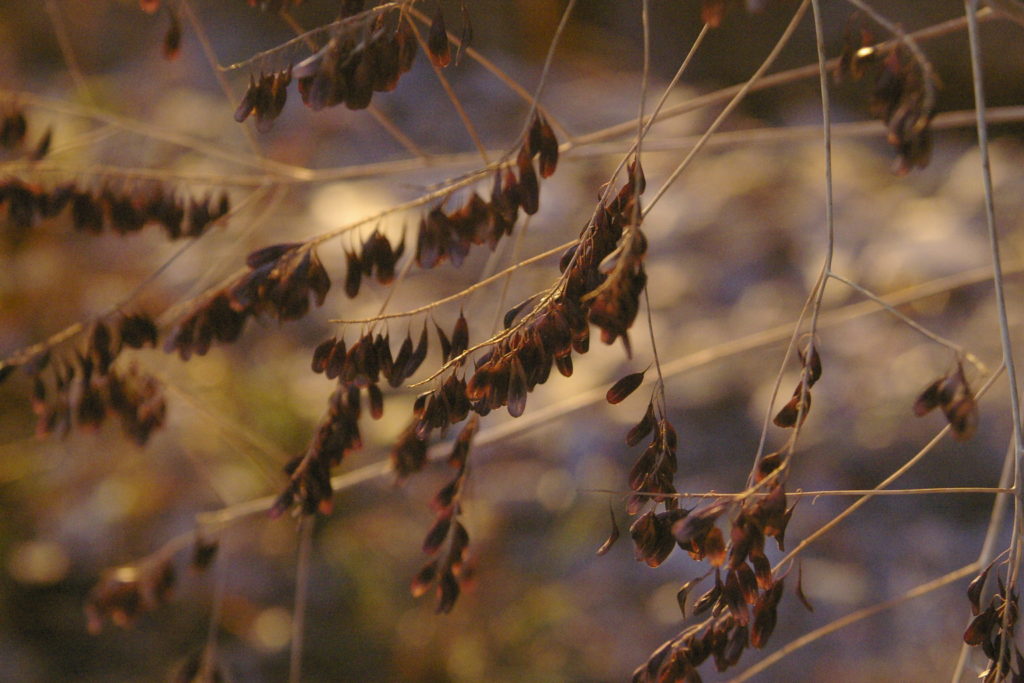Sunday Box Talk – The Way
“It’s time to start living the life you’ve imagined.”
– Henry James
Writing is, much of the time, a lonely pursuit. The writer sits by themselves, even in the midst of others, setting down thoughts in some form that has never existed before. They struggle to capture a vision only they can see and hope to send it out into the world to good reception. The world, consumed by its own concerns and cares, is not always gentle on this writer’s creation.
The good news is that if you are trying to create, you are not alone. There are others on the path with you who, while they may not be on the same path, are nevertheless engaged in parallel pursuits that can inform and illuminate your own. This is good news for many of us who are, for all intents and purposes, very sensitive beings. (I’m sure there are writers out there who don’t care a bean for others’ opinions, but I don’t know any. Do you?)
Many of you have participated in the Artist’s Way or other related material by Julia Cameron, either on your own or in one of the workshops we have held. This process yields many insights that deserve to be shared among those of us struggling to make our voices heard above the din. There are also a number of lifesaving, and writer-saving, tools that we can pass from hand to hand, sort of like water in the desert or food in a famine. If you have a tool that’s been particularly helpful to you, please share it and it will see light in these pages. It is to be hoped that our light can shine brightly enough that it will help others to see, as well as ourselves. And sometimes, when you hold a flashlight, you don’t realize just how bright that light is until you have it pointed in your direction. In darkness, even a pen light can blind you.
The first tool that Julia Cameron offers us, in nearly every book on creativity that she writes, is Morning Pages. She’s even got them in her book The Writing Diet, which is a book about our bodies and not our body of work. Why this seeming obsession with writing in the morning? Is she that abnormality, an artist who is a morning person? (If she is, can I shoot her?) Is she sadistic?
Over the years, I have found her to be spot-on. Morning Pages have consistently helped me create more than I ever dreamed possible. They’ve helped with my writing, my knitting, even my relationship and my job. Why? Well, that’s a little complicated to answer. For me, they act as something Julia Cameron calls ‘spiritual chiropractic.’ What that means is they align me with my higher sense of self, that wise inner voice that we sometimes move too fast to hear.
A shaman once told me that our power exists in the moment. It is only by being present in the moment that we are able to access it. When we are afraid, we are in the future: what might happen. When we are angry, we are in the past: what did happen. When we are in the moment, we are present in the now and able to respond to what is going on around us, right now. Many gurus recommend a meditation practice in order to access this “in the moment” awareness. I am not really cut out for meditation, because I’m usually too busy, and frankly not very good at it. Pages allow me to “do” something while really “doing” nothing at all but allowing my thoughts to come down onto the paper. Since Morning Pages aren’t about writing, (in fact writers may find them very hard to do since they want to “write” them and not just do them), I am not required to actively cognate on paper. This frees me to be as in the moment as I want to be. “I’m on the train. I’m here at the table, drinking coffee.” My pages are filled with little observations like that. In fact, when I get stuck for something to write next, I usually inventory where I am at the moment: in a conference room at lunch break, in the museum on my Artist Date, on the bus, on the train, in the car waiting for my husband… to whit, in the moment.
Natalie Goldberg, another creativity and writing author, talks about this in terms of her Zen practice. She lamented to her instructor that she wasn’t meditating enough. He laughed and pointed out then when she was writing, she was in the moment, in the flow, and therefore meditating. One of Goldberg’s suggestion in Writing Down the Bones is to fill up one notebook a month. Once the focus is on the production of writing, not the quality, it disconnects the cognitive mind from having to “write well” and becomes about simply writing, filling up the notebook. This can be remarkably liberating, because it isn’t about anything other than just setting pen to paper for x number of pages.
Many people ask me if the Morning Pages must be done in the morning. Why not Night Pages? When I first started with the Artist’s Way, I was a confirmed night person. I worked a second-shift job from 4:00 P.M. to midnight and stayed up until 5:00 A.M. and didn’t get up until noon. I wrote whenever I had the time and inclination. As long as I got three pages in, or five since that was my daily goal at the time, I was happy. I got a lot of benefit from it, too – I worked on my Artist’s Way exercises, chakra work, poetry, fiction; all kinds of things. Then one day a few years ago I decided to try them in the actual morning, right after I walked my dog, Coyote. I’d walk Coyote for about thirty or forty minutes, then sit down and do my pages. I had an altogether different experience of them. It’s hard to quantify the difference. Perhaps it was the fact that I wasn’t awake yet, so I was more able to contact my inner voice. Perhaps it was that the day hadn’t cluttered up my mind yet, so I was better able to hear myself. Whatever it was, I enjoyed it and liked the results. I’ve done them as near to first thing ever since.
I saw Julia Cameron speak on her recent book tour for The Writing Diet. She was adamant on the subject of Morning Pages. She said the reason for that is that at night, the day is already over. You can’t change any of it. By doing the pages in the morning, you stand a chance of determining your responses throughout the day, and thereby making more time for yourself and your art. At night, you can only lament lost chances. I thought that was an interesting point.
A lot of the Artist’s Way is about recovering your own autonomy. It doesn’t matter what your voice has to say, whether your medium be the written word or ceramics or metal or dance. It just matters that you are clear enough to hear and then express it. The exercises and tools are aimed at helping us to uncover from societal conditioning against such independence. For some of us, we have not only societal conditioning but familial interference to deal with. Using the tools, like Morning Pages but also the exercises, I’ve been able to clear out the clutter of my mental landscape so I can finally hear myself.
Try it for yourself. You don’t have to believe they’ll work, just give them a try and see what happens for you. The scientific method isn’t about knowing what will happen ahead of time, it’s about deciding on a course of experimentation, trying it, and recording the results. If they are lunch pages, afternoon smoke break pages, night pages, middle of the night pages, or morning pages, just try writing three pages of them, longhand, every day. The next day, three more. And the next day, three more. And again. Again.
Like a heartbeat. Or a river. Learn to hear yourself again.
Originally published on Noonsense blog, 06/11/2010.



Beautifully put. Much of what you\’re saying resonates perfectly. I think I\’ve always sensed it, somehow, but having you articulate it makes me realize it\’s real. Thank you. Also, about filling the notebook page? I was doing that, long before I started word counts. 🙂
I\’m glad that you\’re seeing it too. 🙂 I think the more of us that speak our truth, the better.
Thanks for commenting!
I learned about being in the now some time ago from a friend who was then Buddhist. It takes effort but I\’ve found it is a good way to center myself. Can\’t write longhand anymore. With my tremor it comes out like scribble and my hand cramps up quickly. In some ways aging really sucks!
Yeah, I hear you on the aging thing. Sorry to hear it\’s affected your longhand writing.
I agree, being in the now is a great way to be centered.
Thanks for commenting!